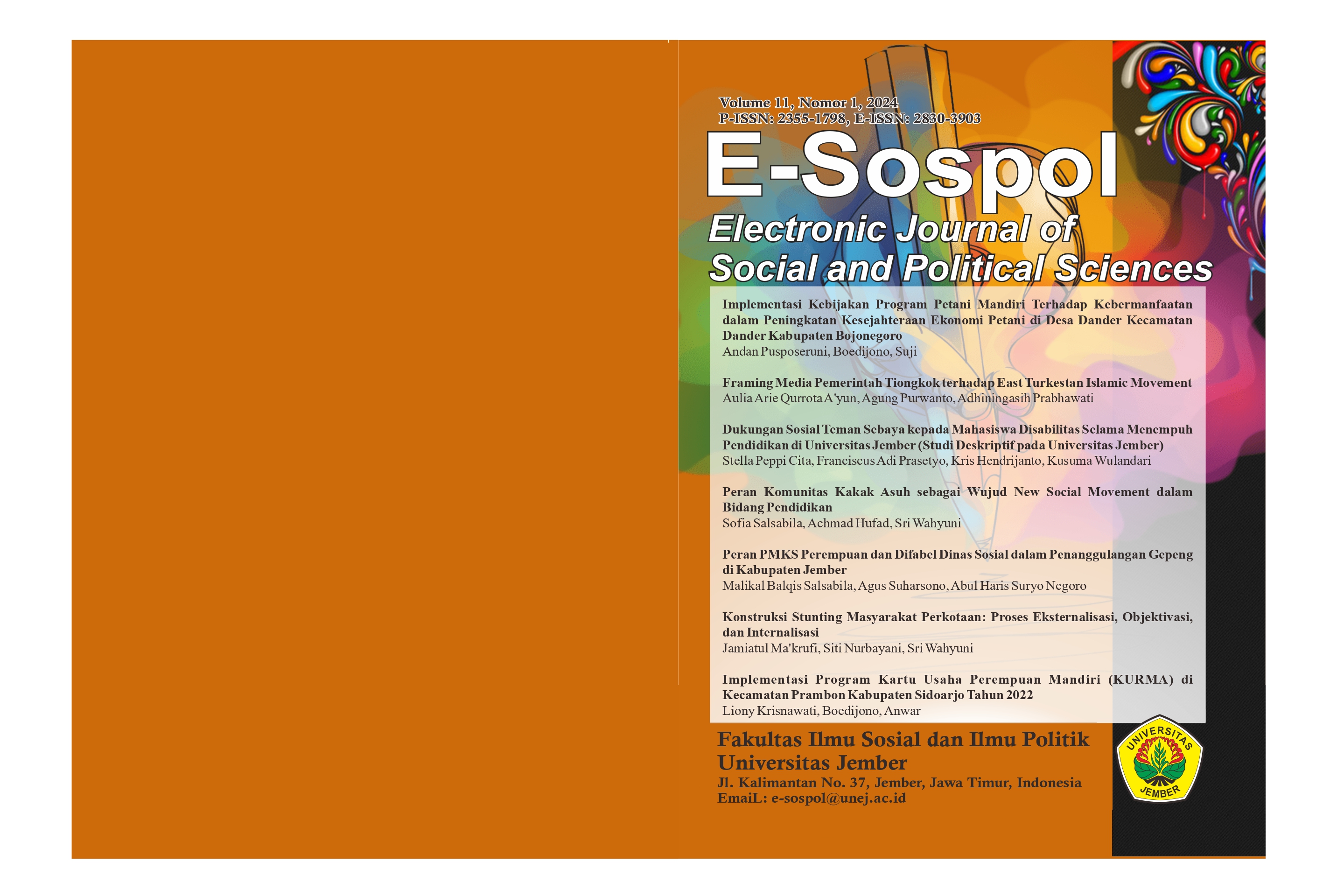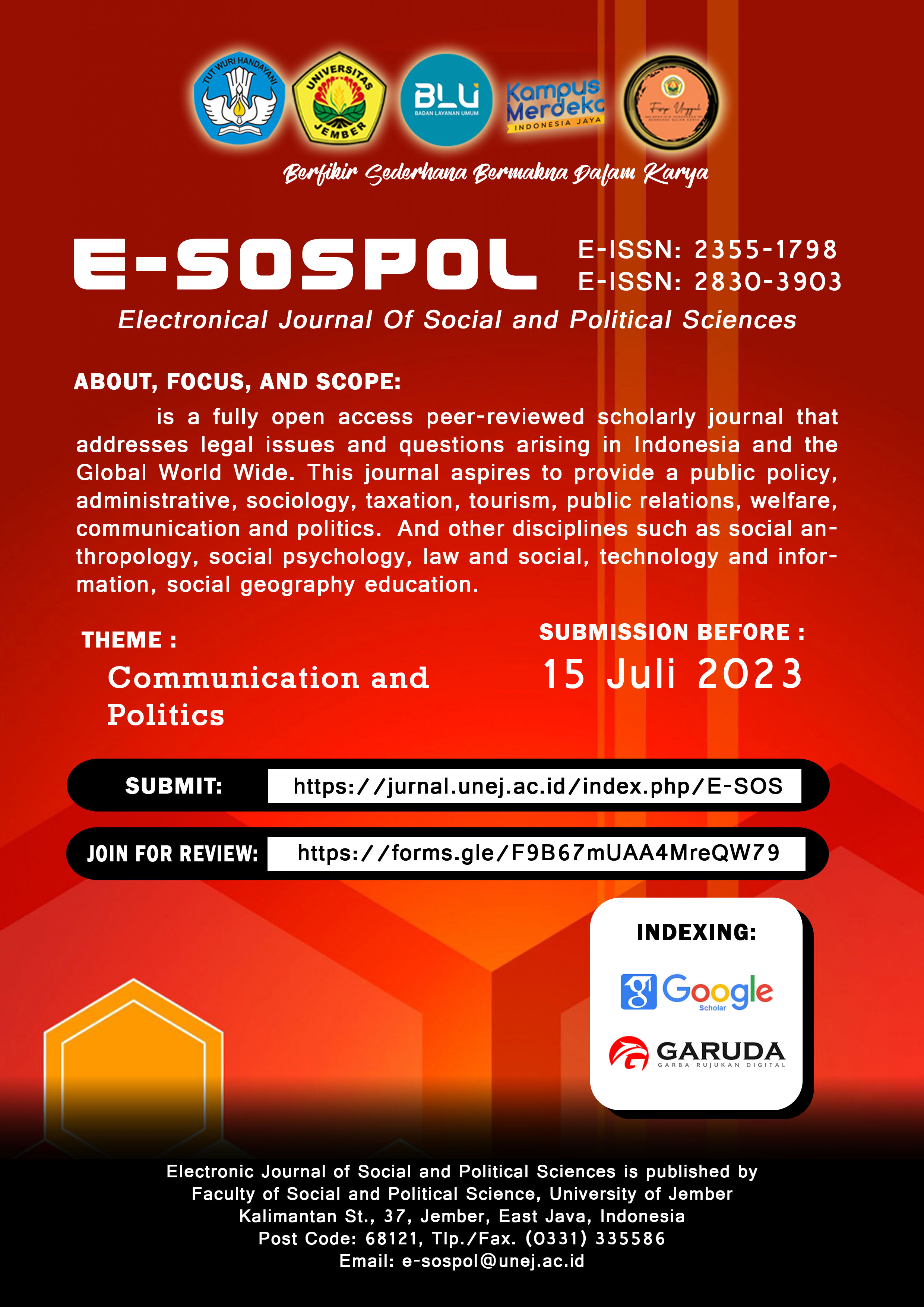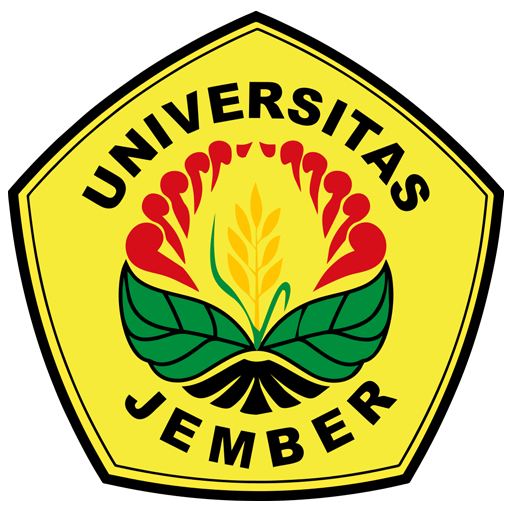Dukungan Sosial Teman Sebaya kepada Mahasiswa Disabilitas Selama Menempuh Pendidikan di Universitas Jember
Studi Deskriptif pada Universitas Jember
Abstract
Problems regarding unmet accessibility needs and discriminatory behavior often faced by disabilities students so that they experience several physical and social obstacles. Therefore, students with disabilities need social support from their social environment, namely fellow students as peers. The purpose of this study was to describe the forms of peer social support to disabilitie students during their education at the Jember University. The research method used is qualitative with phenomenological type. Selection of research informants using purposive sampling technique and obtained 3 main informants and 3 additional informants. Research data were collected using in-depth interview techniques, non-participant observation, and documentation studies. The data analysis process uses the stages of data condensation, data display, verification and conclusions. The results showed that there are forms of peer social support for students with disabilities, including attention, accessibility assistance, social interaction, positive expressions and self-actualization which provide benefits for students with disabilities to be able to function socially and social welfare.
Penulis yang mengusulkan naskahnya untuk dapat diproses penerbitannya pada e-SOSPOL dianggap telah menyetujui beberapa hal sebagai berikut:
1. Penulis tidak dapat menarik naskah yang telah usulkan untuk diproses hingga mendapat jawaban dari Ketua Dewan Penyunting atas status naskah artikel ilmiahnya (diterima atau ditolak untuk diterbitkan).
2. Penerbit tidak bertanggung jawab terhadap kasus plagiasi atas artikel yang terbit pada e-SOSPOL
3. Penerbit tidak bertanggung jawab atas data dan isi dari artikel yang diterbitkan pada e-SOSPOL, dan sepenuhnya merupakan tanggung jawab penulis.







.png)

